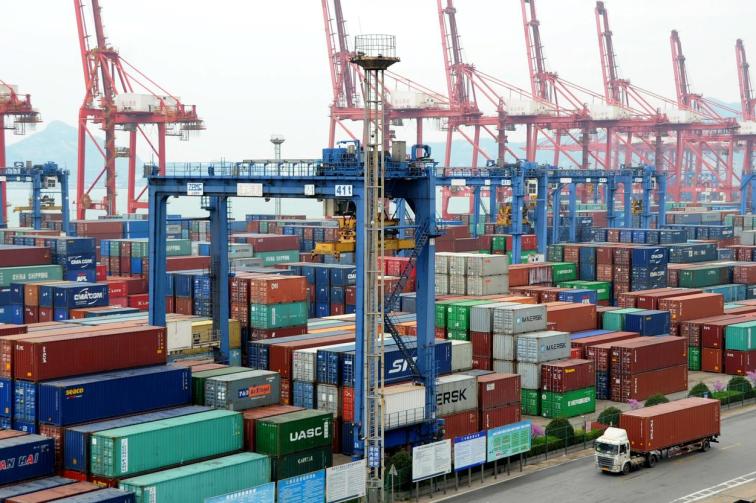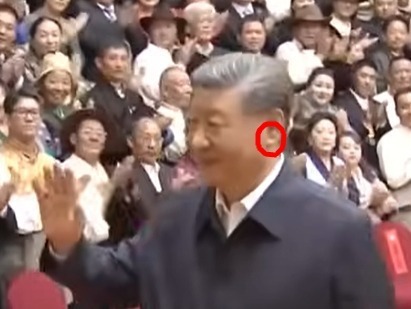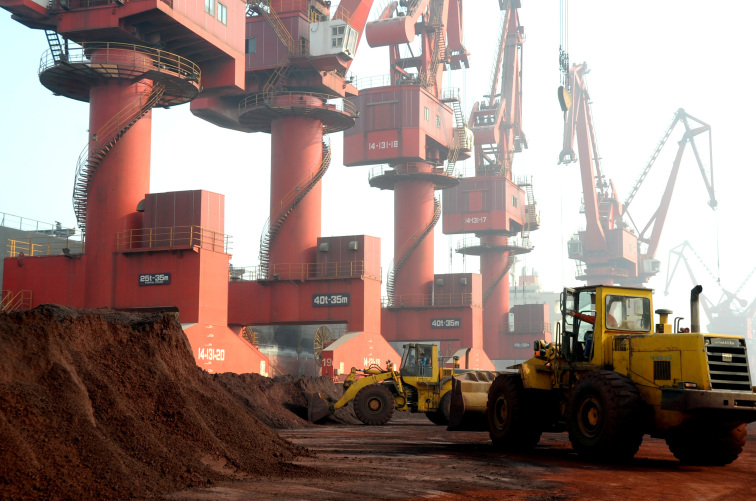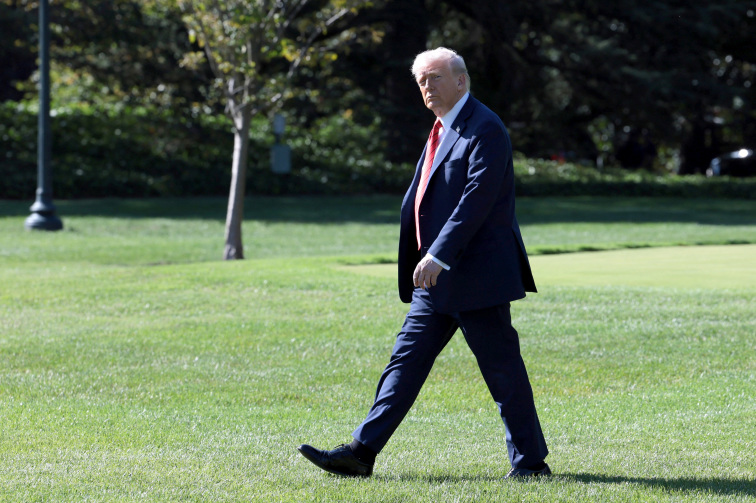Chinese President Xi Jinping arrives in Moscow ahead of Victory Day celebrations
[People News] Less than ten days before the Chinese Communist Party’s (CCP) Fourth Plenary Session, another major event has erupted between China and the United States. After China’s Ministry of Commerce issued seven consecutive announcements — imposing export controls on rare-earth-related products, technologies, equipment, raw materials, and on medium and heavy rare earths, lithium batteries, and graphite; placing 13 U.S., U.K., and Canadian entities on the “unreliable entity list”; and announcing port fees on U.S. ships and an antitrust investigation into Qualcomm — U.S. President Donald Trump unleashed thunderous fury.
On October 10, U.S. local time, Trump posted twice in succession. In his first post, he blasted the CCP’s actions as “holding the entire world hostage,” calling it “something that has never happened before, unheard of,” and describing it as “major hostility.” He said multiple countries were “extremely angry.” Yet, regarding the CCP’s “insidious and hostile” behavior, Trump said he had long anticipated it — “Once again, facts prove I was right.”
In response to Beijing’s surprise move, Trump set a firm tone: the United States will “never allow China (the CCP) to hold the world hostage.” He then clearly outlined five key points to Beijing:
1. “The United States also possesses several monopoly resources that are far more powerful than China’s — I’ve never used them because there was no reason to — until now!” Trump said. This means the U.S. will now employ previously unused measures — targeting China’s dependence on America’s monopoly resources.
At a press conference, Trump mentioned possible export controls on software and aircraft components. These parts include aircraft engines, electronic systems (such as navigation and communication), onboard sensors, and advanced materials. The U.S. leads the world in aerospace technology, and many critical parts and software are indispensable to China — especially for high-performance commercial jets and military aircraft. China operates many Boeing passenger planes that require large quantities of U.S.-made parts for safe operation, and China’s domestically produced COMAC jets also depend heavily on American components.
Additionally, China needs U.S. chips and professional software in fields such as aerospace, high-end manufacturing, and scientific research — even some consumer-grade software. Although China is developing domestic alternatives, it still lags far behind the U.S.
If the U.S. imposes export controls on such software, the problems China would face are self-evident.
2. Trump said: “The conventions of the past are now null and void.” Meaning, all previous agreements between China and the U.S. are now canceled. The U.S. will respond to the CCP’s challenge on its own terms.
3. Trump stated: “This move not only surprised me but also shocked leaders of the free world. I haven’t spoken with President Xi because there’s no need. I was scheduled to meet him at the APEC summit in South Korea in two weeks, but now it seems unnecessary.” In other words, under these circumstances, there is no point in any call or meeting with Xi. Later, at a press conference, Trump clarified that he hadn’t yet canceled the meeting but said, “I’m not sure if it will happen,” depending on Beijing’s next steps.
4. Trump said: “China (the CCP) chose to issue a hostile statement on the very day peace was restored to the Middle East after 3,000 years of chaos and war. Is that really a coincidence?” In other words, Beijing is deliberately stirring up trouble.
5. Trump added: “I never thought things would go this far, but maybe — as with many things — the time has come.” The time for what? The time for a full-scale strike on the CCP. How will that strike happen? Trump said: “We will massively increase tariffs on Chinese goods entering the United States. Many other countermeasures are also under serious evaluation.”
In his second post, Trump again condemned the CCP’s actions as “unprecedented in international trade and a moral disgrace in dealings with other countries.” He then announced: starting November 1, 2025 (or earlier, depending on whether China escalates or changes course), the U.S. will impose an additional 100% tariff on Chinese goods on top of existing tariffs. Also effective November 1, the U.S. will impose export controls on all critical software. The speed of the Trump administration’s retaliation shocked Beijing.
That same day, the U.S. House Foreign Affairs Committee’s majority party reposted Trump’s message, writing: “Xi Jinping is playing with fire and will get burned. President Trump has negotiated with sincerity to bring U.S.-China trade back to balance. But goodwill has its limits — America will not allow China (the CCP) to hold the global supply chain hostage.”
The Office of the U.S. Trade Representative also reposted Trump’s message, stating: “Mr. President, you’re right — ‘The conventions of the past are now null and void.’”
Judging from the reactions of the U.S. president and official agencies, Beijing’s moves have thoroughly infuriated Washington — with severe consequences. Just before the CCP’s Fourth Plenary Session, Beijing’s direct confrontation with the U.S. appears highly unusual, as recent rounds of China-U.S. talks had shown some progress, and the CCP leadership had signaled willingness to negotiate.
Why, then, would the CCP, which should be seeking external stability ahead of a key political meeting that may involve major personnel changes, choose to provoke the U.S. now?
One possibility is that Xi’s faction, rumored to be losing influence, is deliberately stirring up a crisis ahead of the plenary session to regain lost power — provoking the U.S. to force the CCP’s senior elders, who still hold real authority, to retain Xi’s titles in order to respond to American retaliation.
Another possibility is that China’s party, government, military, academic, and think-tank circles have long misjudged the U.S., assuming that the old “fight and talk” tactic would still work — believing that by pressuring Trump, especially by choking off rare-earth exports, the U.S. would “correct its mistakes” and return to negotiation. But would Trump and the U.S. yield to threats? Trump’s tough response is the answer.
What should the CCP do next after “playing with fire”? If Beijing continues to confront Washington head-on, the result is clear — the strikes will come faster, harder, and heavier. Can the CCP withstand that? If it lowers its stance and quietly seeks reconciliation, the “anti-America faction” will explode in fury.
However, Trump still offered Beijing a way out during a press conference. When asked, “If they withdraw the new export controls, would you hold off...?”, Trump replied, “We’ll see what happens. That’s why I set the deadline for November 1. We’ll wait and see.”
The question is — will the CCP withdraw its newly announced export controls? If it does, it will lose face internationally. If it doesn’t, it will lose substance. △











News magazine bootstrap themes!
I like this themes, fast loading and look profesional
Thank you Carlos!
You're welcome!
Please support me with give positive rating!
Yes Sure!